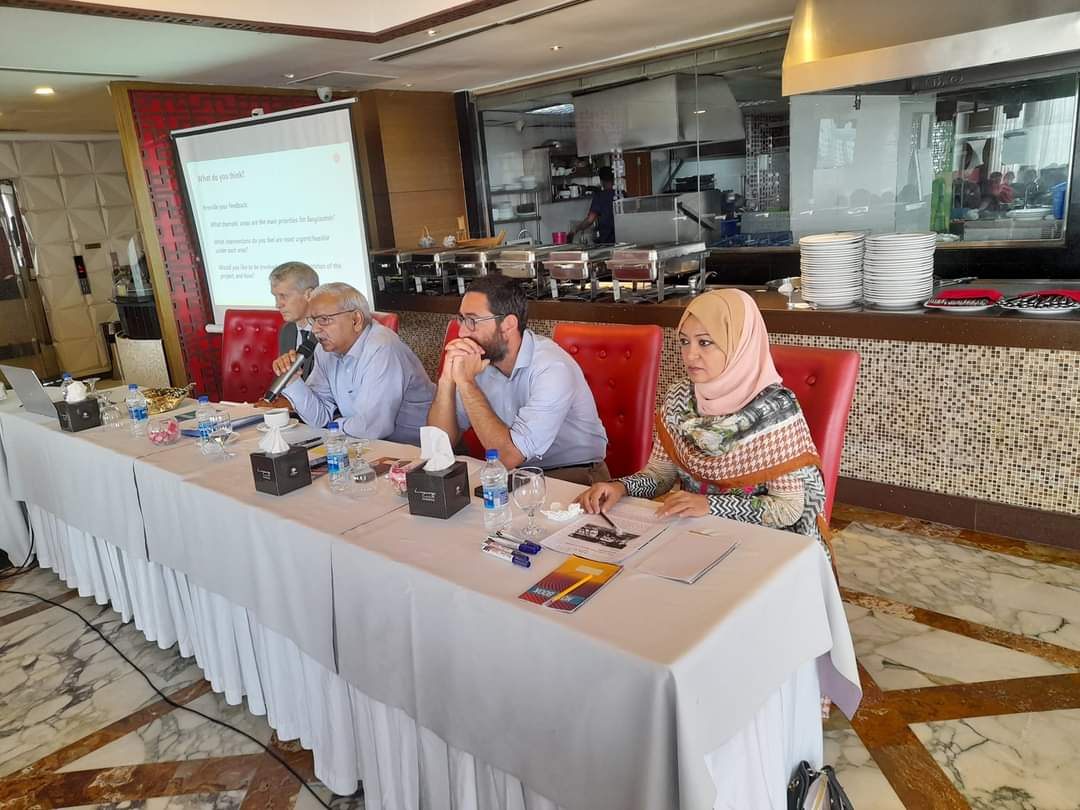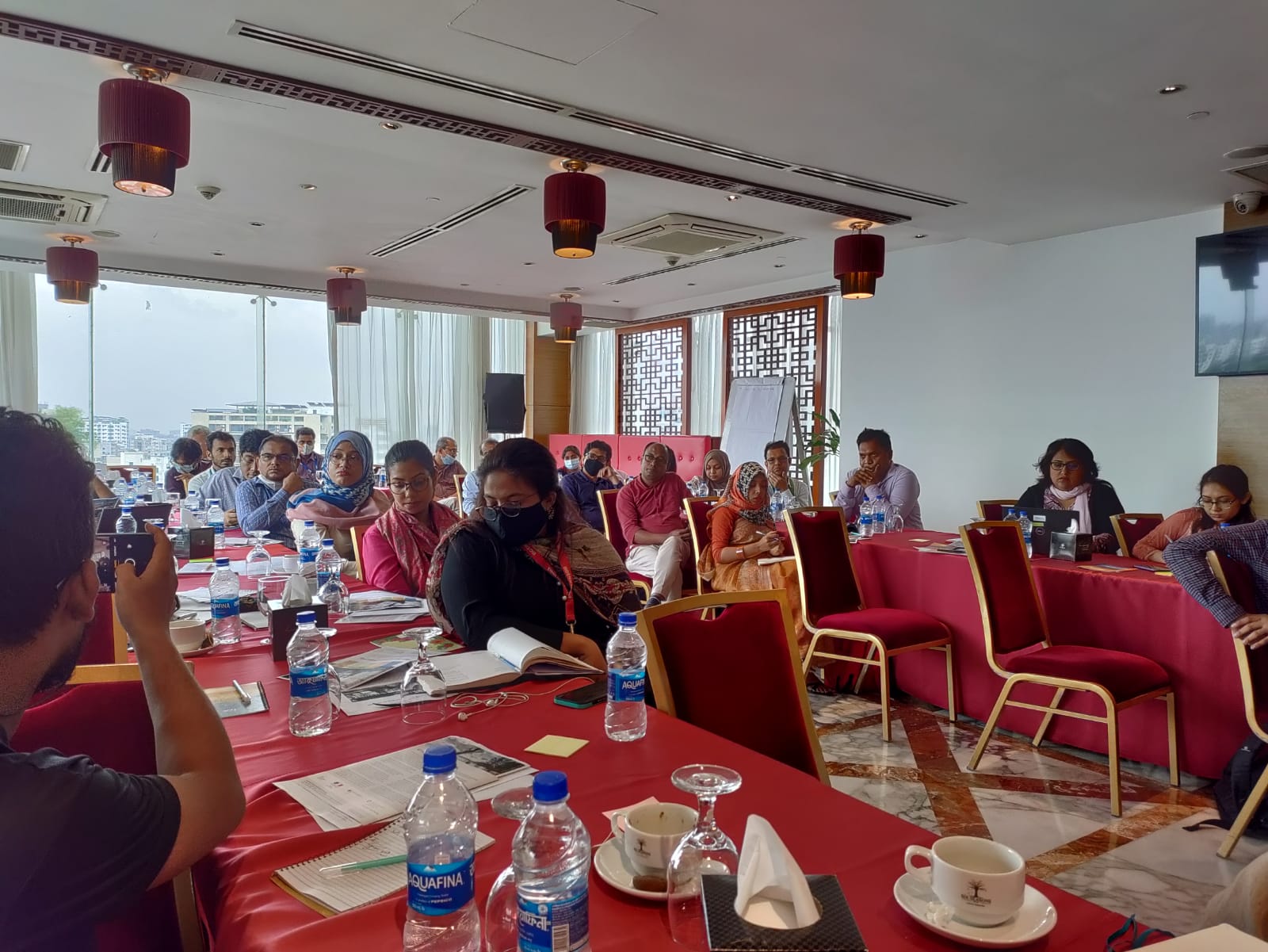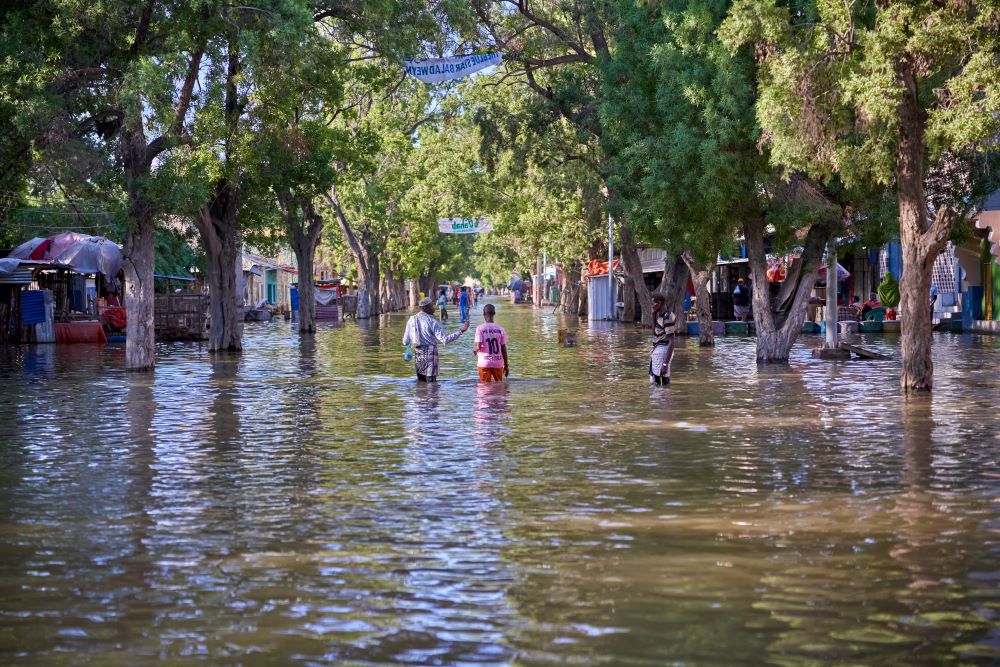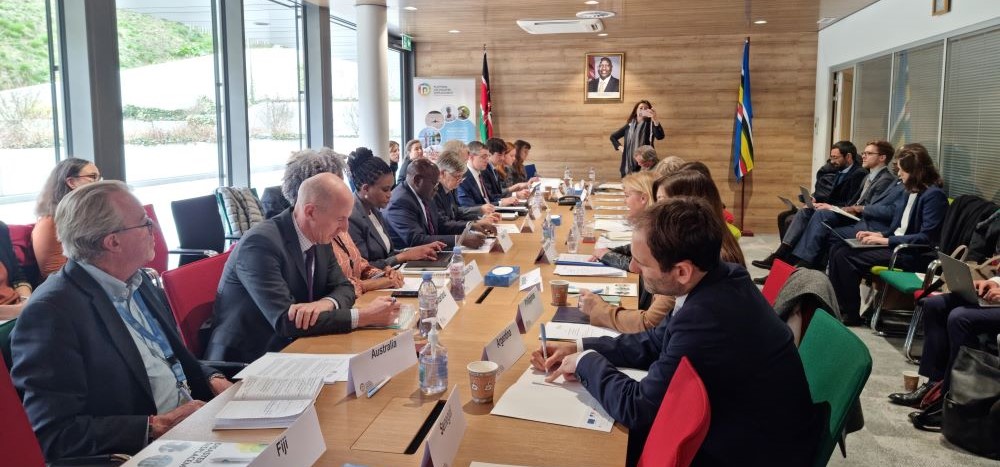In March 2024, the United Nations Special Rapporteur on the human rights of internally displaced…
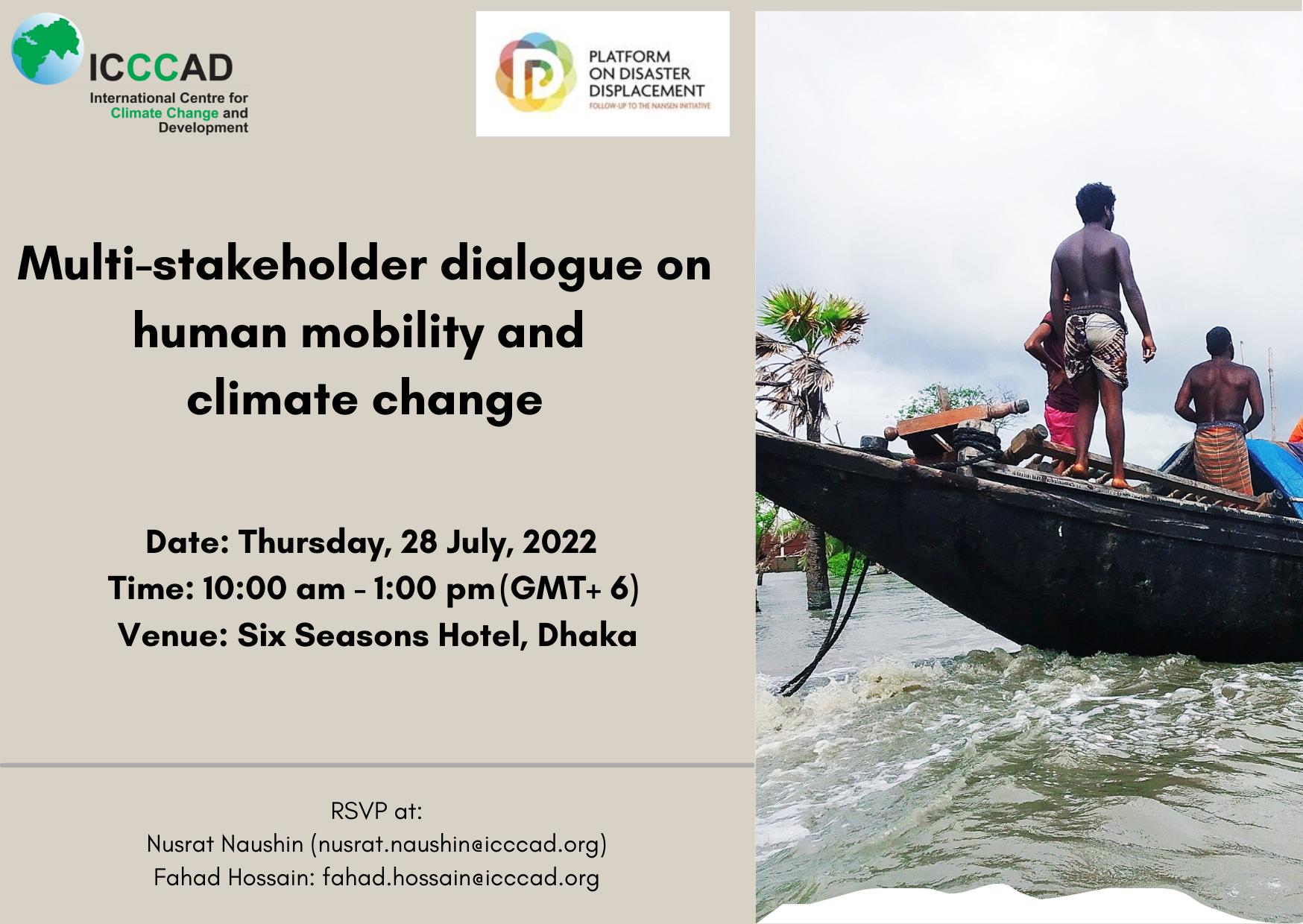
Reporting Back | Averting, Minimizing and Addressing Loss and Damage Related to Displacement and the Adverse Effects of Climate Change in Bangladesh
Dhaka, 28 July 2022 – The Platform on Disaster Displacement (PDD), in partnership with the International Centre for Climate Change and Development (ICCCAD), organized a multi-stakeholder dialogue on human mobility and climate change titled Averting, Minimizing and Addressing Loss and Damage Related to Displacement and the Adverse Effects of Climate Change in Bangladesh.
This multi-stakeholder dialogue was organized in support of PDD’s Project to Avert, Minimize and Address Disaster Displacement (PAMAD), funded by the Norwegian Agency for Development Cooperation (Norad). Bangladesh is one of the project’s implementation countries, alongside Fiji, Guatemala, and Kenya.
PAMAD’s global scope spans five pillars, namely: (1) Knowledge Development; (2) Displacement Risk Assessment; (3) Preparedness for Disaster Displacement; (4) Integrated Planning Process; (5) Access to Finance.
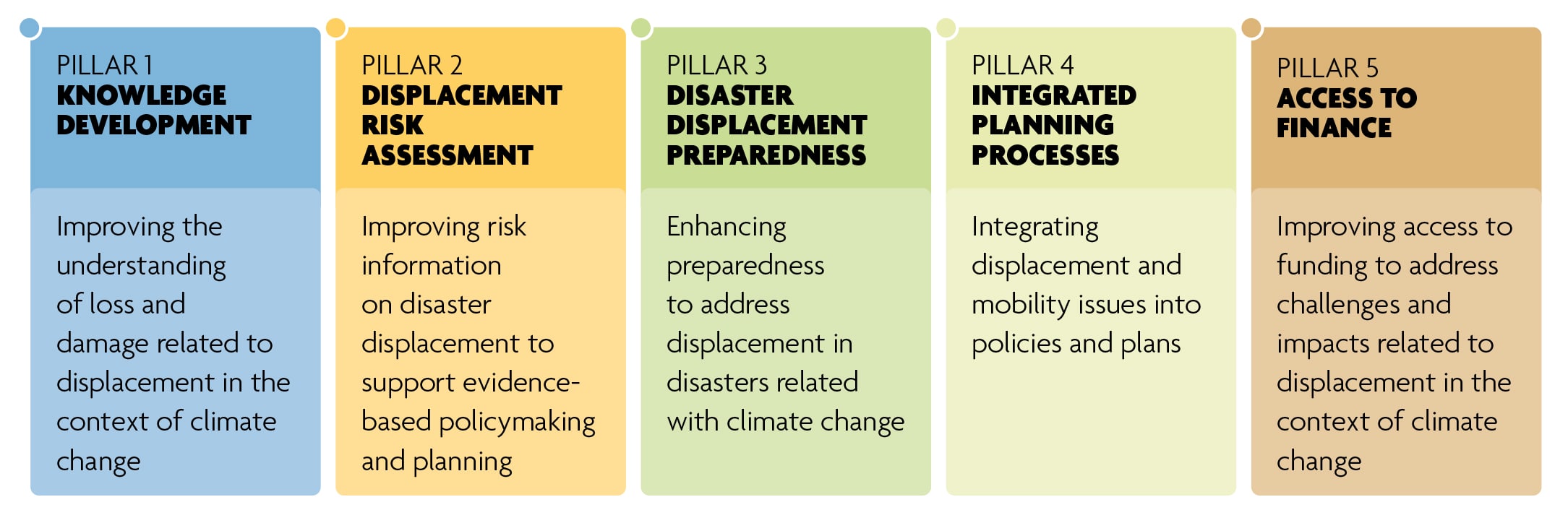 Through the discussions held at the event, technical experts and researchers from the civil society and international community in Bangladesh explored concepts and ongoing action on displacement related to climate change impacts in Bangladesh. The event complemented ongoing conversations and efforts on the topic. It represented an opportunity to continue to engage key stakeholders on displacement and climate change and to seek input from experts and practitioners on the scope and focus of the project activities to be implemented. Participants provided inputs on three key questions:
Through the discussions held at the event, technical experts and researchers from the civil society and international community in Bangladesh explored concepts and ongoing action on displacement related to climate change impacts in Bangladesh. The event complemented ongoing conversations and efforts on the topic. It represented an opportunity to continue to engage key stakeholders on displacement and climate change and to seek input from experts and practitioners on the scope and focus of the project activities to be implemented. Participants provided inputs on three key questions:
- Which pillars of the project are the main priorities for Bangladesh?
- Which of the proposed interventions within the project scope are felt to be most urgent/feasible under each area of work?
- In which ways would participants like to engage with and support the implementation of the project?
Dr. Saleemul Huq, Director, ICCCAD, opened the event by recalling that available science shows that climate change and its impacts are and will be profoundly affecting human mobility patterns, triggering displacement, shaping migration trends, and requiring investments for planned relocation of communities, but also reducing people’s ability to move spontaneously. These mobility impacts are a key element of the discussions on loss and damage in the context of the adverse effect of climate change, as highlighted by the establishment of the Task Force on Displacement (TFD) under the Warsaw International Mechanism for Loss and Damage (WIM) and the centrality of mobility topics within the discussions under the Glasgow Dialogue.
During the Q&A session, attendees shared ongoing work and current priorities to address human mobility in the context of losses and damages suffered due to disasters and climate change. Issues of particular relevance included the impact of slow-onset processes on human mobility patterns, the need to look at mobility through a gender lens, the importance of integrating forward-looking mobility considerations into urban and land-use planning, and displacement as a disaster preparedness concern. Moving ahead, these areas of work, and potential partnerships, will be integrated into the planning and implementation of the project.
As part of the concluding remarks, Dr. Saleemul Huq emphasized that ICCCAD is committed to supporting PAMAD in the longer term, highlighting how the project has the potential to serve as a model to address loss and damage related to disaster displacement in vulnerable countries.
Following the workshop, PDD is elaborating a draft national implementation plan, which will be submitted to the Government of Bangladesh for revision and approval before the end of September.

